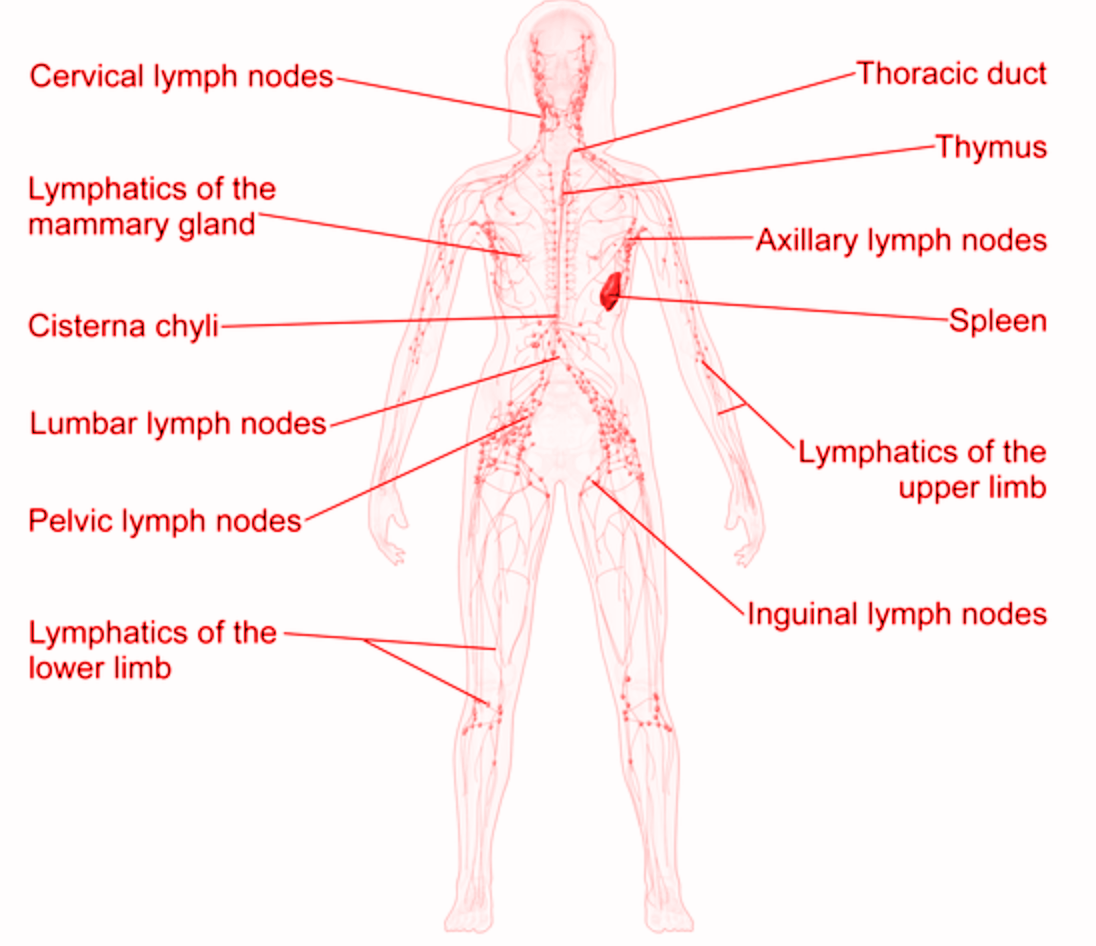Question
Question: As compared to blood, the lymph contains___ (a) Fewer red blood corpuscles (b) Less amount of wa...
As compared to blood, the lymph contains___
(a) Fewer red blood corpuscles
(b) Less amount of water
(c) less amount of metabolic wastes
(d) Less amount of proteins
Solution
The arteries branch into fine capillaries at the tissue level. The contents of blood diffuse through these capillaries into the interstitial fluid or lymph. Only low molecular weight substances can escape through these pores.
Complete answer:
The fluid collected between the spaces of cells in a tissue is called lymph or interstitial fluid or tissue fluid. Lymph contains more water than plasma of the blood. It is a colorless fluid due to the absence of RBCs. It acts as a middle man between the tissues and the blood system. All the metabolic wastes from tissues are collected in the lymph. The lymph contains lesser proteins than the blood and generally, only smaller proteins like albumin can be found in the lymph.

So, the correct answer is ‘Less amount of proteins.’
Additional information:
- Blood is the most common body fluid having all the living cells, which are being provided with nutrients, oxygen, essential substances, and harmful substances also. The latter are continuously being removed for the healthy functioning of fluids.
- Blood is a special connective tissue containing a fluid matrix called plasma and formed elements. Plasma is a cloured, viscous fluid constituting about 55% of blood. It contains fibrinogens, globulins, a small number of minerals like Na+, Mg2+, Cl−, glucose and amino acids, etc.
- Formed elements in the blood are erythrocytes, leucocytes, and platelets which are about 45% of blood.
- Erythrocytes or RBCs are formed in the red bone marrow in adults.
- Leukocytes or white blood cells are nucleated and their concentration in the blood is lower than erythrocytes.
- The network of vessels called the lymphatic system collecting lymph and draining it back to the major veins.
Note:
- Lymph performs the function of the exchange of nutrients, gases, hormones, etc between the blood and tissues.
- Fats are especially absorbed through lymph in the lacteals present in the intestinal villi of our alimentary canal.
- Special lymphocytes in the blood protects our body from any infection by generating immune responses whenever required.
